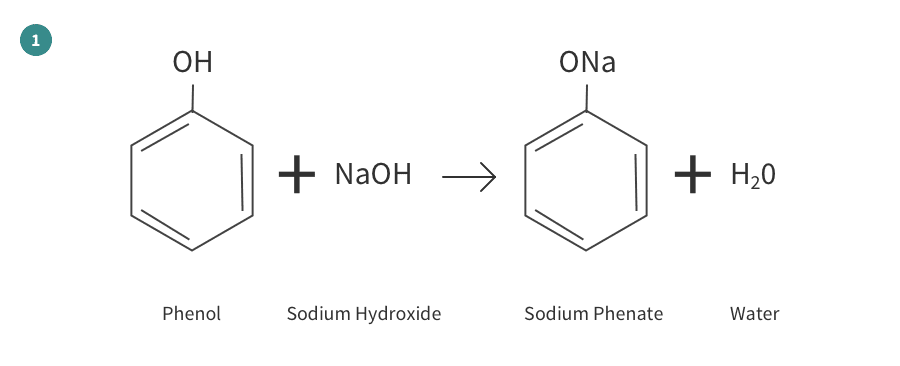Aspirin, otherwise known as acetylsalicylic acid, is a widely used medication that is available in both prescription and over-the-counter forms. Aspirin has a variety of uses, from pain relief to reducing inflammation. One of the most important aspects of aspirin use is its half-life – the length of time it takes for the drug to be reduced by 50%. Knowing this information can help inform how often and when to take aspirin for therapeutic purposes.

Table Of Content:
- The antithrombotic profile of aspirin. Aspirin resistance, or simply ...
- Aspirin | Circulation
- Chronic low-dose aspirin therapy attenuates reflex cutaneous ...
- Aspirin - Wikipedia
- Aspirin in ET: will twice a day keep thrombosis away? | Blood ...
- Dosing Frequency of Aspirin and Prevention of Heart Attacks and ...
- Aspirin: Uses, Interactions, Mechanism of Action | DrugBank Online
- Enteric-coated aspirin in cardiac patients: Is it less effective than ...
- The Chemistry of Aspirin | The International Aspirin Foundation
- Aspirin survival in human blood modulated by the concentration of ...
1. The antithrombotic profile of aspirin. Aspirin resistance, or simply ...
https://thrombosisjournal.biomedcentral.com/articles/10.1186/1477-9560-2-1
Jan 14, 2004 ... The resultant decrease in production of prostaglandins and TXA2 probably accounts for much of aspirin's antithrombotic effect [1, 2]. The plasma ...
2. Aspirin | Circulation
https://www.ahajournals.org/doi/10.1161/01.cir.101.10.1206 The plasma half-life of aspirin is only 20 minutes; however, because platelets cannot generate new COX, the effects of aspirin last for the duration of the ...
The plasma half-life of aspirin is only 20 minutes; however, because platelets cannot generate new COX, the effects of aspirin last for the duration of the ...
3. Chronic low-dose aspirin therapy attenuates reflex cutaneous ...
https://www.ncbi.nlm.nih.gov/pmc/articles/PMC2644251/ In healthy subjects, low-dose, enteric-coated aspirin reaches peak plasma concentration within 3–4 h after ingestion and has a half-life of 15 min (2, 3, ...
In healthy subjects, low-dose, enteric-coated aspirin reaches peak plasma concentration within 3–4 h after ingestion and has a half-life of 15 min (2, 3, ...
4. Aspirin - Wikipedia
https://en.wikipedia.org/wiki/Aspirin Liver (CYP2C19 and possibly CYP3A), some is also hydrolysed to salicylate in the gut wall. Elimination half-life, Dose-dependent; 2–3 h for low doses (100 ...
Liver (CYP2C19 and possibly CYP3A), some is also hydrolysed to salicylate in the gut wall. Elimination half-life, Dose-dependent; 2–3 h for low doses (100 ...
5. Aspirin in ET: will twice a day keep thrombosis away? | Blood ...
https://ashpublications.org/blood/article/136/2/151/461246/Aspirin-in-ET-will-twice-a-day-keep-thrombosis Jul 9, 2020 ... Despite its short plasma half-life (∼10-20 minutes), the biological effects of aspirin last several days because of the time required for ...
Jul 9, 2020 ... Despite its short plasma half-life (∼10-20 minutes), the biological effects of aspirin last several days because of the time required for ...
6. Dosing Frequency of Aspirin and Prevention of Heart Attacks and ...
https://www.amjmed.com/article/S0002-9343(06)00578-X/abstract
However, because approximately 10% of the circulating platelet pool is replenished daily and the serum-half life of aspirin is only a few hours, ...
7. Aspirin: Uses, Interactions, Mechanism of Action | DrugBank Online
https://go.drugbank.com/drugs/DB00945
The half-life of ASA in the circulation ranges from 13 - 19 minutes. Blood concentrations drop rapidly after complete absorption. The half-life of the ...
8. Enteric-coated aspirin in cardiac patients: Is it less effective than ...
https://www.sciencedirect.com/science/article/pii/S0010865017300504 Aspirin is very quickly (half-life 15–20 min.) hydrolyzed to salicylic acid, 70–90% of which is bound to plasma proteins. Increased pH of intestinal fluid ...
Aspirin is very quickly (half-life 15–20 min.) hydrolyzed to salicylic acid, 70–90% of which is bound to plasma proteins. Increased pH of intestinal fluid ...
9. The Chemistry of Aspirin | The International Aspirin Foundation
https://www.aspirin-foundation.com/history/chemistry/ It takes about 48 hours to excrete an aspirin completely. The half-life of aspirin in the blood stream is 13-19 minutes and the half-life of its metabolite ...
It takes about 48 hours to excrete an aspirin completely. The half-life of aspirin in the blood stream is 13-19 minutes and the half-life of its metabolite ...
10. Aspirin survival in human blood modulated by the concentration of ...
https://pubmed.ncbi.nlm.nih.gov/7082400/ In vitro aspirin hydrolysis rates were measured in fresh human whole blood and in its separate components. The half-life of aspirin in whole blood was ...
In vitro aspirin hydrolysis rates were measured in fresh human whole blood and in its separate components. The half-life of aspirin in whole blood was ...
What is the half-life of aspirin?
The half-life of aspirin is approximately 20 minutes. This means that after 20 minutes have passed, only 50% of the original dose remains active in the body.
How does this affect how I should take aspirin?
Since aspirin has a relatively short half-life, meaning it does not remain active in your system for a very long time, it may be necessary to take more frequent doses than other medications with longer half-lives. It is important to follow your doctor's instructions when taking any medication and adjust your dosage if instructed to do so.
Are there other factors that can affect the half life of aspirin?
Yes, certain environmental factors such as pH levels and temperature can affect the rate at which aspirin breaks down and thus its half-life. Factors such as age and overall health status can also have an impact on how quickly your body processes and eliminates medications such as aspirin.
Conclusion:
Aspirin plays an important role in treating many conditions including pain relief and inflammation reduction. The drug's half life needs to be factored into dosing regimens in order for the medication to be effective and safe for use. It's important to speak with your doctor before taking any new medications or adjusting dosages as this can help avoid potential side effects or unwanted interactions.
